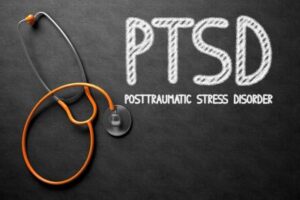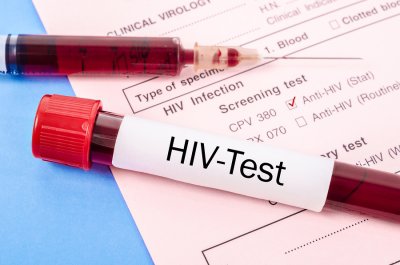-
Horseplay in the Workplace: A Look at Workers’ Comp
Employees in Baltimore can rely on workers’ comp law to protect them in the event of a job-related injury or illness. However, there are a few gray areas, such as injuries that result from horseplay in the workplace. Because of the risk that your claim would be denied, you should contact a workers’ comp lawyer as soon as possible after becoming injured in a horseplay-related incident.
Watch this video to hear more about applicable workers’ comp issues. You’ll learn that multiple factors may be considered before denying or approving the claim, such as the nature of the injuries, the role of the injured worker in the incident, and the history and culture of the workplace. If your workers’ comp claim is denied based on willful misconduct, your attorney may file an appeal. Another alternative is filing a personal injury lawsuit against the other employees.
-
Steps to Take When You Get Injured at Work
Employees have rights, but sometimes their inaction can cause those rights to be forfeited. One example is workers’ comp claims. In Baltimore, workers’ comp law allows for the rejection of claims if they are filed past a certain deadline. You can protect your rights by acting quickly. As soon as a work-related injury occurs, you should notify your supervisor that you must leave work to seek medical attention . You have the right to visit a doctor of your choosing. It isn’t necessary to restrict your medical care to employer-approved doctors.
At the hospital, inform every healthcare provider who evaluates and treats you that your injury is work-related. Ask that your medical records reflect this fact. Save all documents pertaining to your medical care, including co-pay receipts and discharge instructions. You should file a formal workers’ comp insurance claim soon after receiving medical care. Then, call a lawyer who can effectively advocate on your behalf. Your attorney can help you receive all the benefits you’re entitled to, and appeal your claim if necessary.

-
A Family’s Guide to Post-Accident PTSD
Although post-traumatic stress disorder (PTSD) is strongly associated with combat veterans, people of all ages and backgrounds can develop it—including residents of the Baltimore area who have been involved in car accidents . PTSD is a serious mental health disorder that warrants the attention of a medical professional. Since behavioral healthcare services can be expensive, and aren’t always covered by insurance, your family may decide to talk to an injury lawyer about the merits of seeking compensation from the at-fault party.

Understanding PTSD
Unlike many mental health disorders, PTSD has an identifiable cause. It always stems from exposure to a traumatic, frightening, or dangerous event, such as the following:
- Being in a war zone
- Experiencing the death of a loved one
- Seeing a dead body
- Surviving a major car accident
- Being trapped in a car after an accident
The symptoms of PTSD linger well beyond the event itself, and they can last past the time it takes the person to physically recover. PTSD does not indicate any character flaws or lack of willpower. It isn’t possibly to simply “snap out of it.” PTSD is a real medical condition that requires expert treatment.
Recognizing PTSD
The signs and symptoms of PTSD can be chronic or short-lived, and not everyone experiences the same symptoms. Usually, symptoms begin within three months of the event. The signs of PTSD are grouped into categories. An official diagnosis requires the individual to experience the following for at least one month:
- One or more re-experiencing symptoms
- One or more avoidance symptoms
- Two or more cognition and mood symptoms
- Two or more arousal and reactivity symptoms
Re-experiencing symptoms are those that involve reliving the trauma. They include flashbacks, nightmares, and frightening thoughts that are impossible to control. Avoidance symptoms occur when the person tries to avoid places, objects, or activities that remind him or her of the event. For example, a car crash survivor might become incapable of getting in a car. Arousal and reactivity symptoms include:
- Angry outbursts
- Difficulty sleeping
- Feeling tense
Lastly, cognition and mood symptoms include:
- Memory loss
- Negative thought patterns
- Withdrawal from previously enjoyed activities
Getting Treatment for PTSD
Treatment is best begun as soon as possible. After a loved one survives a car accident, families should be alert to the potential signs of PTSD. Its treatment is usually a combination of medications, such as antidepressants, and psychotherapy.
-
Does HIV/AIDS Qualify for Social Security Disability Payments?
Human immunodeficiency virus (HIV) is a chronic, incurable disease that attacks the immune system. This leaves patients vulnerable to other serious infections and diseases. Acquired immunodeficiency syndrome (AIDS) is the end stage of HIV infection. Because HIV can take years to progress, patients might not qualify for Social Security disability benefits for a while. A lawyer in Baltimore who handles Social Security disability claims can provide personalized guidance based on the factors that are unique to each case.

When HIV/AIDS Qualifies for Disability Benefits
The primary infection results in acute, flu-like symptoms that typically last no longer than a few weeks. After this point, the patient enters the clinical latent infection stage, also known as chronic HIV. If the patient does not take HIV medications, the stage may last 10 years before progressing to AIDS. With medications, it may take a few decades before reaching the end-stage. During the chronic HIV stage, patients often experience few to no symptoms. This means they might not be classified as disabled. To qualify for Social Security disability benefits before HIV progresses to AIDS, patients must prove that they have one or more “opportunistic” illnesses that arise as a result of the suppressed immune system.
How to Prove Disability
HIV/AIDS patients must first prove that they were diagnosed with HIV/AIDS. This is easily accomplished via medical records. The next step is more complex. It involves sorting through the Social Security Administration’s “blue book,” or listing of official disability requirements. Patients would be well advised to consult a lawyer about these requirements before filing a claim. Here’s a brief, incomplete overview of the requirements:
- Bacterial infection, including multiple infections that required hospitalization
- Viral infection, including treatment-resistant shingles
- Fungal infection, including pneumonia caused by Pneumocystis fungi
- Protozoan or helminthic infection, including toxoplasmosis
- Cancer
- Skin or mucous membrane condition, including treatment-resistant lesions
- HIV encephalopathy with brain swelling that causes cognitive/physical impairment
- HIV wasting syndrome, with a loss of 10% or more bodyweight
- Diarrhea that requires intravenous hydration
Other illnesses can qualify. Consult a lawyer for further guidance.
How to Qualify Based on Limited Functional Capacity
Even if patients do not qualify under the disability listing, they may qualify for benefits based on their limited functional capacity. A residual functional capacity (RFC) rating determines whether a person can perform sedentary, light, or medium work. The SSA will probably consider a person disabled if he or she lacks job skills and higher education, and can only perform sedentary work.
-
Be Prepared for Accidents
The steps you take after a car accident in Baltimore can have a significant impact on your ability to file an accident injury lawsuit in the future. Watch this video to prepare yourself to act if an accident happens to you.
In the immediate aftermath of the car accident, the first priority is getting emergency medical attention if necessary. Call the police to the scene of the accident, and document the location, make and model of other vehicles, and road conditions, using photos if possible. Exchange information with the other driver, but don’t discuss the details of the collision. Go the hospital or your doctor for an exam after the accident, even if you don’t think you’re injured. Some common car accident injuries, like whiplash, don’t cause symptoms right away, so it’s important to see a doctor for diagnosis and to document the injuries as soon as possible.
-
Qualifying for Disability with Low Vision or Blindness
If you are living with low vision or blindness, you could qualify for Social Security disability benefits. However, the qualification requirements are strict and the procedure is lengthy, so it is helpful to have an experienced attorney in Baltimore to assist during the approval process. Here is what you need to know about applying for disability benefits for low vision or blindness.

How does the Social Security Administration define blindness?
In order to be considered blind under Social Security guidelines, you must not be able to correct your vision to better than 20/200 in your better eye for a period of at least 12 months or a period that is expected to last for at least 12 months. Alternatively, you can have a visual field of 20 degrees or less in your better for the same time period. If your vision doesn’t meet the definition of blindness but you have low vision that prevents you from working either alone or in conjunction with other health issues, then you still may be eligible for benefits.
What kind of disability benefits can I receive?
Two disability programs may provide benefits when you’re blind or have low vision: Social Security Disability Insurance (SSDI) and Supplemental Security Income (SSI). SSDI is based on credits earned while working, so you are only eligible for it if you have ever had a job, or in some cases, based on your parents’ or spouse’s earnings. SSI is not based on past employment, so you are eligible for these benefits even if you don’t have any work history.
How do I apply for benefits?
Although you can apply for benefits by contacting the Social Security Administration on your own, having a lawyer guide you through the process is recommended. Many people are rejected for benefits on their first try, and having an attorney can help you avoid an initial rejection and the need to appeal. An experienced attorney knows how to avoid application errors and build your case effectively.
-
Are Employers Legally Liable for Non-Employee Injuries?
Workers’ compensation insurance protects employers from the financial cost of workplace injuries for their employees, but what about non-employees who are injured while on a job for you? When working with independent contractors, issues of injuries and workers’ comp law in Baltimore become more complex. Consulting with a workers’ compensation attorney can help you understand your rights.
Your liability for non-employee injuries is determined by several different factors. The first is whether you correctly classify the injured party as a non-employee or if he or she should have been classified as an employee and covered by your workers’ compensation coverage. For a true independent contractor, you cannot provide workers’ compensation coverage but the contractor can sue you, if he or she can provide that your negligence contributed to his or her injury. If the worker should have been an employee, you may be required to pay unpaid past benefits as well as injury compensation. Even if your independent contractor has his or her own insurance, you can be sued if your negligence was a factor in the injury. Because of the complexity of workers’ comp laws, you should consult with an attorney immediately after a non-employee injury occurs.

-
A Closer Look at Violence in Healthcare Settings
Violence can happen at any workplace, but healthcare workers have a greater risk than most. They are the most assaulted workers in the country—in fact, 60% of assaults in the workplace happen to healthcare workers. If you are the victim of an assault at work, consult a workers’ compensation attorney in Baltimore to find out what your rights are. In addition to providing you with workers’ compensation, you may be entitled to other damages if your employer failed to take the necessary steps to create a safe environment.

Why is violence so pervasive in healthcare?
There are many risk factors that contribute to violence in the healthcare setting. One is the emotionally charged environment in healthcare, particularly when patients and their loved ones are experiencing life or death emergencies. Patients may also come in with mental health issues and maybe using drugs that can impact their thinking and their behavior. Increased demand on the healthcare system can further exacerbate the stress of the workplace and make the environment even more volatile.
Who is most at risk for violence?
Women are most at risk for being the victims of workplace violence. Approximately 80% of healthcare workers who take time off from work for injuries and illnesses that occur because of violence at work are women. Across all industries, women account for only 39% of workplace violence injuries. Women also make up the majority of the healthcare workforce, which partially accounts for why they are so frequently the targets of violence.
What should you do if you are the victim of workplace violence?
After an incident of workplace violence, report the assault immediately. In addition to working with your employer to address the violence, consider talking to a workers’ compensation attorney or a personal injury lawyer. You may need long-term medical care for both physical and psychological trauma that may be covered by workers’ compensation insurance, and you may be eligible to receive other damages if your employer’s negligence contributed to the violent incident.
-
Could I Have a Concussion?
Concussions are a common car accident injury that can lead to problems that may not always be immediately obvious. Because concussions can cause symptoms that can last indefinitely without treatment, it is important to get a diagnosis as soon as possible. If you are in a car accident in Baltimore and believe that you could have a concussion or another injury, speak to an accident attorney to find out what your rights are for compensation. If you experience any of the symptoms of a concussion, visit the emergency room as soon as possible.

Headache
Because concussions are caused by impacts to the head, headaches are a common symptom. Headaches caused by concussions can be dull and aching, or they may be severe. Some people experience a feeling of pressure in their heads more than a traditional kind of headache pain. Any time you have a headache or pressure in your skull after an impact to the head, you should be evaluated to see if you have a brain injury like a concussion.
Confusion
With a concussion, many people describe feeling dazed, confused, or as through they are walking around in a fog. They may also have amnesia about the car accident and the events immediately before and after it. Speech may be slurred, and they may give delayed responses in conversations. These problems can persist after a concussion and turn into long-term concentration problems and memory issues.
Psychological Changes
After a concussion, many people experience uncharacteristic irritability, excessive crying, depression, and sleep disturbances. Personality changes may also occur. These symptoms frequently don’t appear immediately after the car accident injury but in the days that follow, and they can persist well into the future. For some people, these symptoms are the only ones that are experienced. After a head injury, any psychological or behavioral changes should be reported to a doctor, who can determine if an injury such as a concussion is to blame.
-
Does Workers’ Comp Cover Mental Health Injuries?
Mental health injuries that occur at work can be as devastating as physical ones, but are you eligible to receive workers’ compensation for them? In Baltimore, workers’ comp law generally does allow this kind of coverage, but you may need an attorney to help you make your claim.
Watch this video to learn more about workers’ compensation and mental health injuries. If you experience post-traumatic stress disorder or depression because of something that happens on the job, you will need to consult your state’s workers’ comp laws to find out what your rights are. In Maryland, if the mental health injury was sustained at work, you are generally entitled to workers’ comp. These cases are sometimes difficult to prove, so it is helpful to have an attorney fighting for your rights.
RECENT POSTS
categories
- Uncategorized
- Worker's Compensation
- Attorney Fees
- Auto Accident Injury Whiplash
- Attorney Review
- Personal Injury
- Social Security Disability
- DUI
- Workplace Injuries
- Auto Accident
- Workers Compensation Claims
- Permanent Disability
- Infographic
- Drunk Driving
- Wrongful Death
- Works in Maryland
- Uninsured Motorists
- Motorcycle Crashes
